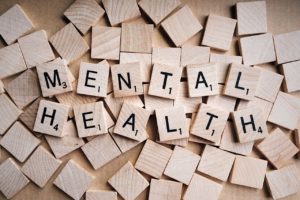11 Warning Signs Of Concealed Depression
People often associate depression with observably low energy levels, laying in bed, and being outwardly sad. There’s truth to this in some cases, but it’s often not so simple. You may think you know what to look for, but unless you’re aware of these key symptoms, you’re mistaken. The fact is that, all too often, people that are willing to help are simply looking for the wrong signals. As a result, someone who needs support may continue to suffer in silence.
People living with concealed depression cope with their condition using internal methods. These coping mechanisms are difficult to detect compared to overt depression symptoms. Remember these signs, and you may be able to help someone whose subtle signs of pain would otherwise continue to go unnoticed. (Continues on Page 2)
Advertisement
1. Compensatory Mood Behavior
People with concealed depression, however, may appear very happy or outgoing. They may even be the most outgoing people you’ve ever met, but this is often because they’ve made a conscious effort appear so. If you evaluate this behavior in context, and are able to read between the lines, the deeper truth may reveal itself. (Continues on Page 3)
Advertisement

Advertisement
Habitual Remedies
Depression Fact: Major depressive disorder affects almost 7% of the United States population each year.
You may know someone who appears to be extremely dedicated to a sport. Or when they seem upset, they seek refuge in a particular hobby. While this can be healthy and therapeutic, that doesn’t preclude these behaviors from signaling that a person is experiencing internal struggles.
It’s important to note that this isn’t to say that all people who are dedicated to sports are depressed. As with all of the symptoms in this list, they should be evaluated within the overall context of the person’s behavior.
Advertisement

Advertisement
Fear of Abandonment
Depression Fact: The median age at which depression occurs is 32.
Concealed depression also affects the people closest to the person living with the condition.Because of the emotional toll that this can take, relationships can often be damaged resulting in people being pushed away. From the standpoint of the person living with concealed depression, this can be perceived as abandonment.
Having these experiences of perceived abandonment can further validate the need for concealing behaviors.
Advertisement

Help reduce negative stigmas around seeking mental health treatment. Please share this article.
Advertisement
Rationalization
Depression Fact: Women are at higher risk of depression than men.
Concealed depression can often lead to concealed dysfunctional behavior. Whether it involves self-harm, skipping important occasions, or being unable to hold down a job, the person living with concealed depression becomes more adept at making the dysfunction less detectable. They may have convincing stories to explain where their scars came from. Or the person may have a very elaborate story for why they’ve gone through several jobs in a matter of months.
In many cases, these stories aren’t just to conceal from other people – often, they’re rationalizing in order to insulate themselves from facing their own pain.
Advertisement

Help reduce negative stigmas around seeking mental health treatment. Please share this article.
Advertisement
Atypical Eating And Sleeping Habits
Depression Fact: 1 in 33 children are suffering from clinical depression.
Unless you live with the person, dysfunctional eating and sleeping habits may be very difficult to detect. While the conventional perception of depression is one in which a person sleeps excessively, the depressed person may also suffer from a lack of sleep. Similarly with food, a person may have atypical dietary habits in which they over-eat or under-eat. What do all of these atypical behaviors have in common? Control. They are behaviors that the person feels they can control in the context of a life they may feel is otherwise out of control.
Advertisement

Help reduce negative stigmas around seeking mental health treatment. Please share this article.
Advertisement
Self-Medication
Depression Fact: 1 in 8 adolescents are suffering from clinical depression.
People living with concealed depression will often become hyper aware of how different substances impact their body chemistry and psychological state. While most people won’t give much thought to a few drinks beyond getting a buzz, a person living with depression or concealed depression will begin to view substances as tools to manipulate and medicate their state of consciousness. They will begin to self-medicate, and this can sometimes lead to more extreme abuse of those substances.
Advertisement

Help reduce negative stigmas around seeking mental health treatment. Please share this article.
Advertisement
Frequent Contemplation of Life And Death
Depression Fact: Depression is a major contributing factor in almost 70% of suicides.
Suicidal ideation is something that is commonly associated with severe depression and requires immediate medical attention. If you were to hear someone expressing contemplation of suicide, it would be a no-brainer to encourage them to seek medical attention. However, suicidal ideation is a piece of an overall spectrum of a preoccupation with life and death.
People suffering from depression and concealed depression often find themselves engaged in deep existential contemplation, trying to understand and work through the meaning of life and death. This is often an attempt to answer some of life’s unanswered questions that may be inhibiting person’s sense of meaning and purpose.
Advertisement

Help reduce negative stigmas around seeking mental health treatment. Please share this article.
Advertisement
Exceptional Expression
Depression Fact: Depression increases risk of heart attack by 400%.
Have you ever met someone with such an engaging charisma that could never in a million years imagine them being depressed? You may be surprised to find out that some of the most outgoing people are struggling inside.
Just last year, we lost several talented people that may have very well been facing an internal struggle for many years, including Robin Williams and Chris Cornell. Don’t judge a book by its cover, and never assume that because a person smiles they don’t feel sadness. Sometimes deep pain can lead to profound capacities for artistic expression.
Advertisement

Help reduce negative stigmas around seeking mental health treatment. Please share this article.
Advertisement
Searching For Purpose
Depression Fact: 2 out of 3 people suffering from depression will not seek or receive treatment.
People who are struggling to find purpose can often struggle with concealed depression. Conversely, people with concealed depression may have a deep drive to find purpose in order to alleviate those feelings.
In some cases, people struggling with concealed depression may undertake certain challenges or journeys in life to find a sense of purpose. This can be an ongoing struggle for some, while it could very well alleviate symptoms in others. If their efforts don’t address the root cause of their concealed depression, they will continue to suffer.
Advertisement

Help reduce negative stigmas around seeking mental health treatment. Please share this article.
Advertisement
Hints Of Need For Help
Depression Fact: Treatment can yield improvement in depression symptoms in as little as 4 weeks.
Pay close attention to the words spoken by your loved ones. Sometimes, they will literally tell you they’re struggling with depression. However, they may do so implicitly, or with a momentary lowering of their guard in which they make a quick admission of their internal struggle.
If you’re truly listening, you may be able to pick up on these momentary and subtle admissions.
Advertisement

Help reduce negative stigmas around seeking mental health treatment. Please share this article.
Advertisement
Seeking Love And Acceptance
Depression Fact: Professional depression treatment has success rates as high as 80%.
Seeking love and acceptance from your fellow humans isn’t something unique to those struggling with concealed depression. However, those with concealed depression will often have an otherwise guarded way of interacting with people. This guise is created with the intention of self-protection, and it’s a critical part of what allows them to keep their depression concealed.
It’s important to remember that these people also require love. Sometimes, it can be challenging to reciprocate these needs, especially when they’re in their lowest lows. However, if you truly care for them, don’t give up on trying to help.
Advertisement

Help reduce negative stigmas around seeking mental health treatment. Please share this article.
Advertisement
Help reduce negative stigmas around seeking mental health treatment. Please share this article.


